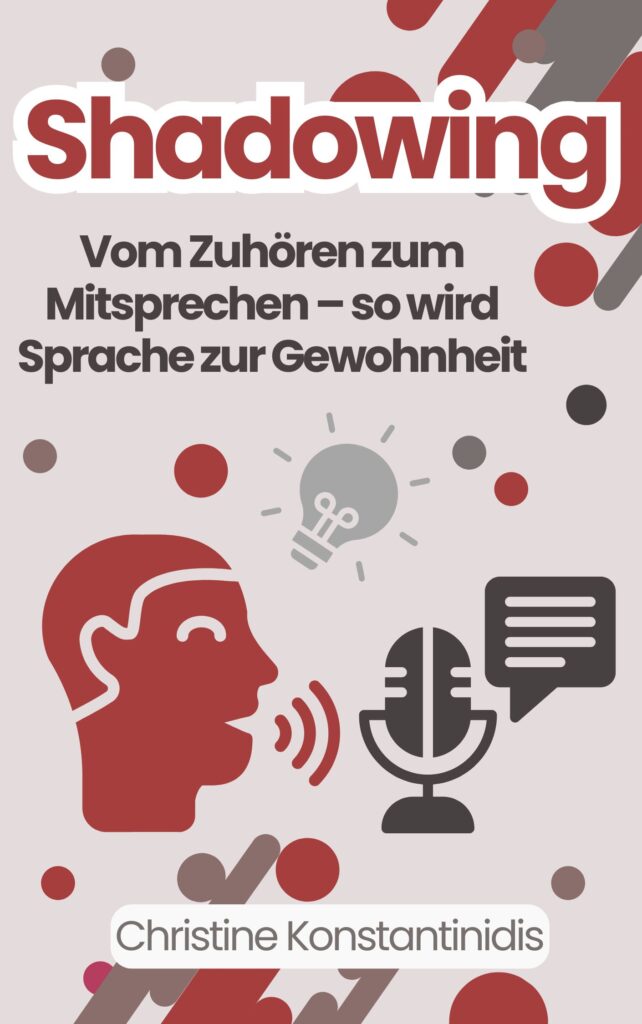
Auch heute gibt es wieder die Originalantworten in Englisch und Italienisch zur vierten Folge der Interviewserie auf meinem Blog und auf dem Blog von Sprachheld.de
Die vierte Frage lautete:
Do you have a daily habit in language learning?
Quali abitudini e routine quotidiani riguardo allo studio hai imparato?
Viel Spaß beim Lesen der Antworten. Die deutschen Übersetzungen findest du in den beiden oben verlinkten Artikeln.
Kirsty Major 
I try to set aside dedicated time for language learning but I also try to build it into my normal routine. Therefore I make sure that articles in the languages I want to learn appear on my Facebook timeline or I listen to podcasts in these languages when I’m cooking dinner. In this way, I can spend more time on my language learning and it doesn’t feel as though I’ve blocked out a huge chunk of my day to do so.
Guilherme Castro
I have lots of them. I think daily habits are the key of language learning, so I try to maintain as many of them as possible. I think it is crucial to do at least one hour of listening every day, which could be basically to watch videos on Youtube. But that is my opinion, and what really works for me. But in general, I would say that people can freely decide their daily habits, since they DO HAVE daily habits. The most important is to have them. Although in question nine you can check some suggestion I give about “things to avoid”, so I would invite you to check there what kind of studies I think would not work well for anyone as a daily habit. Other them that, almost every study is worthy if it is done in a daily basis.
Jane Eggers 
Well… since I’m British and live in Germany, I’m technically learning all the time My kids are now also very good at correcting my German. Last year I learned a little bit of Italian each day and made good progress for quite a while, but in the end I didn’t manage to keep it up (I should start again).
Olly Richards
Yes and no. I make sure to always do something, but that thing will often change depending on my goals. I do, however, have a weekly habit, which is speaking for at least 1 hour, 2-3 times a week.
Giulia Novali 
Le mie routine dipendevano dal percorso scolastico linguistico momentaneo e dunque mutavano di volta in volta.
Claudia Scaringi
La routine è una componente essenziale quando si studiano le lingue, iniziamo a dimenticarci regole e vocaboli se non li pratichiamo regolarmente. Se, ad esempio, lavorate molto e non avete molto tempo per studiare, vi consiglio di studiare anche solo 10 minuti ma tutti i giorni, rispetto a studiare 6 ore di fila una volta alla settimana. E, come ho precedentemente detto, scrivo sempre nella mia agenda quando devo dedicare il mio tempo alle lingue. Quindi, quando è il momento dei miei 20minuti di russo quotidiani, tolgo tutte le distrazioni (email, cellulare, lavoro) e mi concentro solo sulla lingua che devo imparare. Vedrete che uno studio breve ma intenso e fatto regolarmente vi darà grandi risultati. Inoltre, quando si parla di „studio“ non pensate sempre alla grammatica, imparare le lingue dovrebbe essere divertente! Alternate il vostro metodo di studio, un giorno potete leggere un articolo o un breve racconto, un giorno potete guardare un video, un giorno potete vedere una regola grammaticale nuova, un giorno potete parlare con un madrelingua… Ci sono così tanti modi di imparare!
Chiara Fortini
Leggo il blog della mia amica di penna Christine, ascolto della musica e penso in lingua straniera a ciò che potrei raccontare ai miei amici di penna.
Visito i siti in lingua dei luoghi che mi piacerebbe visitare all’estero o qui in Italia per far conoscere ai miei amici di penna la nostra bellissima Italia.
Das waren die Originalantworten zur vierten Interviewfrage. Die Antworten von Giulia, Chiara, Olly, Kirsty und Jane in deutscher Sprache findest du bei Sprachheld.de, die Antworten von Claudia und Guilherme bei mir auf dem Blog.
Herzliche Grüße
Christine





Schreibe einen Kommentar